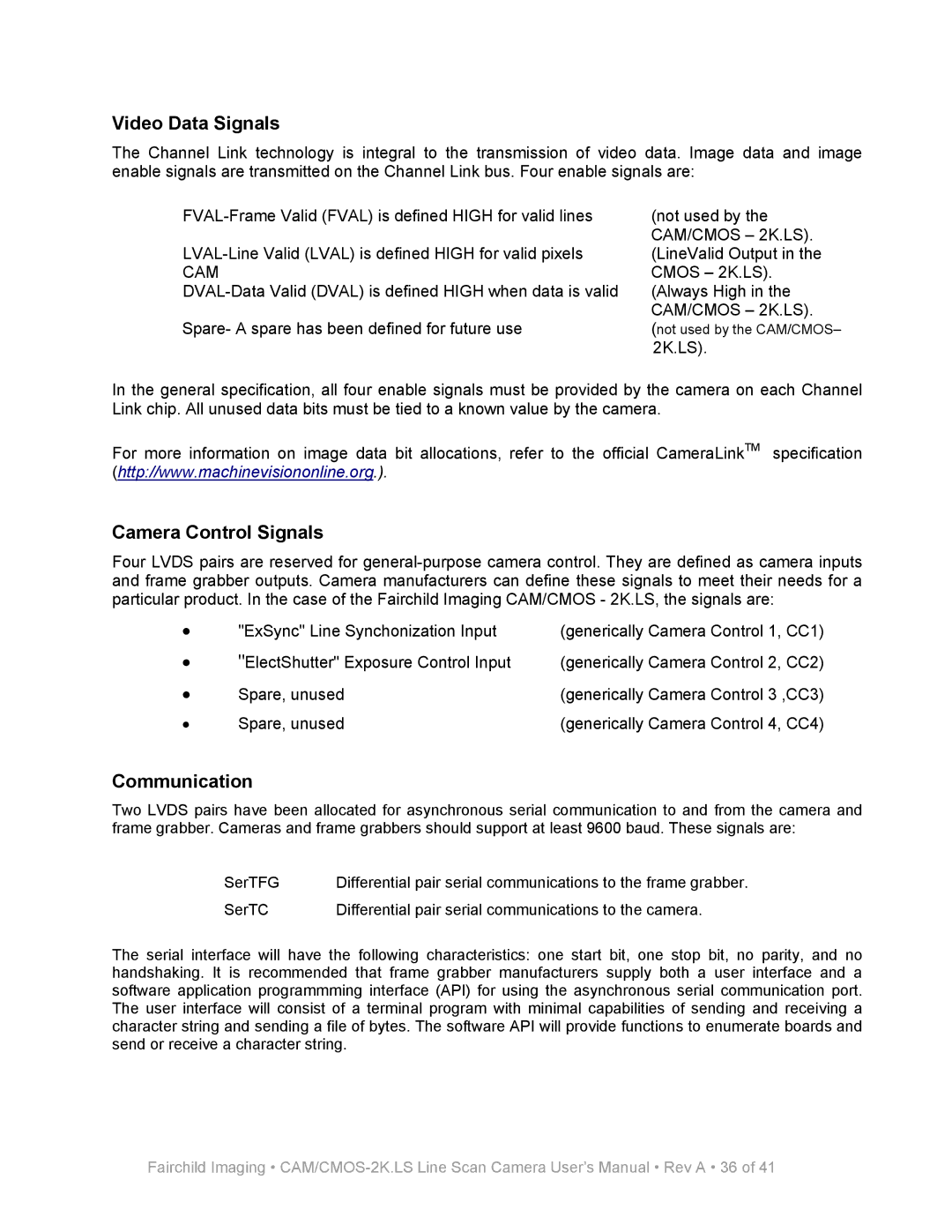Video Data Signals
The Channel Link technology is integral to the transmission of video data. Image data and image enable signals are transmitted on the Channel Link bus. Four enable signals are:
(not used by the | |
| CAM/CMOS – 2K.LS). |
(LineValid Output in the | |
CAM | CMOS – 2K.LS). |
(Always High in the | |
| CAM/CMOS – 2K.LS). |
Spare- A spare has been defined for future use | (not used by the CAM/CMOS– |
| 2K.LS). |
In the general specification, all four enable signals must be provided by the camera on each Channel Link chip. All unused data bits must be tied to a known value by the camera.
For more information on image data bit allocations, refer to the official CameraLinkTM specification (http://www.machinevisiononline.org.).
Camera Control Signals
Four LVDS pairs are reserved for
• | "ExSync" Line Synchonization Input | (generically Camera Control 1, CC1) |
• | "ElectShutter" Exposure Control Input | (generically Camera Control 2, CC2) |
• | Spare, unused | (generically Camera Control 3 ,CC3) |
• | Spare, unused | (generically Camera Control 4, CC4) |
Communication
Two LVDS pairs have been allocated for asynchronous serial communication to and from the camera and frame grabber. Cameras and frame grabbers should support at least 9600 baud. These signals are:
SerTFG | Differential pair serial communications to the frame grabber. |
SerTC | Differential pair serial communications to the camera. |
The serial interface will have the following characteristics: one start bit, one stop bit, no parity, and no handshaking. It is recommended that frame grabber manufacturers supply both a user interface and a software application programmming interface (API) for using the asynchronous serial communication port. The user interface will consist of a terminal program with minimal capabilities of sending and receiving a character string and sending a file of bytes. The software API will provide functions to enumerate boards and send or receive a character string.
Fairchild Imaging •
